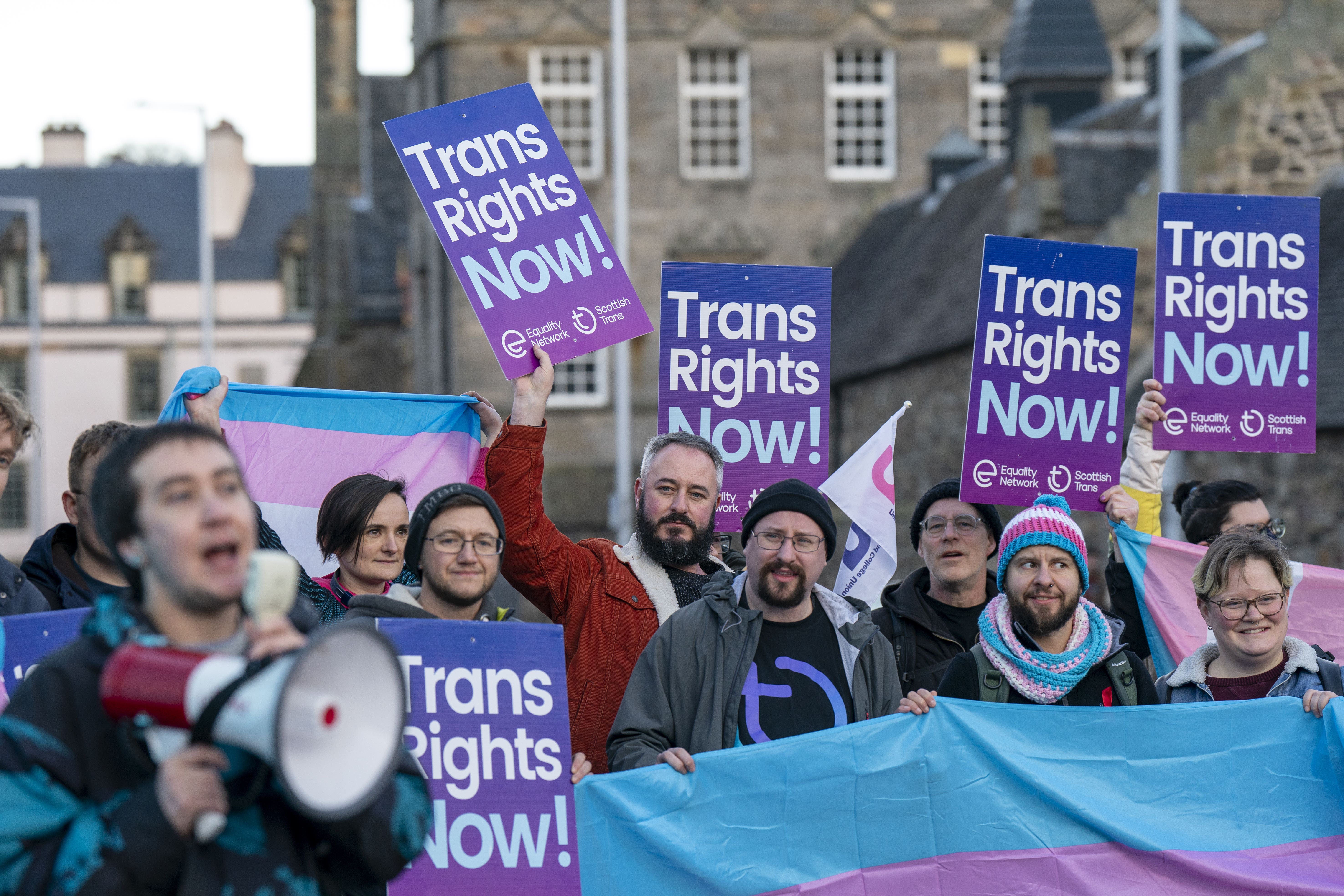Sunak blocking the Scottish gender bill is the biggest setback for LGBT+ rights since Section 28
Trans people in Scotland have waited long enough to simply reflect who they are – now they must wait even longer, writes Iain Anderson


It was with profound sadness that I listened to the secretary of state for Scotland in the House of Commons announce that the UK government would make an order to block Scotland’s Gender Recognition Reform Bill and veto progress for trans rights.
Utilising Section 35 of the Scotland Act in this manner is perhaps the biggest setback for LGBT+ rights we have seen since the dark days of Section 28. Now, trans men and women, just 0.2 per cent of the population, have once again become political footballs in a constitutional battle.
My firm belief is that the UK has and can be better than this, but in recent years it has fallen right down the international rankings for LGBT+ rights–respecting countries. Time after time, reports from respected global bodies, whether the Council of Europe, the UN, or ILGA, cite the recent political and media treatment of trans and non-binary people as a reason for significant concern. When I meet business leaders from around the world they can’t understand how the UK has slipped so far.
This is the nuclear option, which will rock the devolution settlement in the UK by undermining the Scottish parliament’s ability to legislate for the Scottish people.
The bill, which allows trans people from the age of 16 to legally define who they are without years of arduous medical consultations and dehumanising bureaucratic hoops, was passed resoundingly by 86-39 MSPs, with votes from every single party that sits in Holyrood. I have seen suggestions that the vote was “rushed through” or that the legislation hasn’t considered the impact of the legislation on the Equality Act. These are simply lies. This is the most intensively scrutinised bill, perhaps in the entire history of the Scottish parliament.
Over the past six years, there have been two consultations (with more than 32,000 responses). The Scottish parliament’s equalities, human rights and civil justice committee received 10,000 individual responses before hearing eight weeks of evidence from experts and advocates. Then over the following months, there were 36 hours of debate over Stages 2 and 3 of the bill as the Scottish parliament considered 155 amendments.
We saw night after night of debate in the wee hours as the committee considered hundreds of amendments. They debated the bill for so long in the Scottish parliament that one night the lights in the debating chamber literally went out. The vast majority of female MSPs voted in support of the bill and strikingly, all of the major women’s charities in Scotland argued in favour of the bill, including Women’s Aid, Amnesty International, Engender, and Rape Crisis Scotland.
The UK government has had the entire length of this legislative process to engage constructively with the bill. Indeed, some Whitehall officials have worked with their Scottish counterparts throughout. But to suggest that this is a “bad law” that has not been adequately considered is, in my opinion, simply a cover for an attempt to use trans people as a political football, driven purely by prejudice and opportunism.
Unfortunately, the UK is not leading the world in this aspect of LGBT+ rights. Ireland passed the same laws back in 2015, and with no adverse consequences. A de-medicalised process of gender recognition is now settled law there, as it is in Canada, Argentina, New Zealand, Malta, Norway, and many other jurisdictions. In none of these countries have we witnessed anything go wrong. All that has occurred is that trans people have been given the basic dignity of legally recognising that they know themselves better than anyone else.
It looks like we may now be headed for the courts, as the Scottish government has indicated that they will seek to vigorously defend the legislation. Trans people in Scotland who have already waited more than half a decade for the simple right to make a small amendment to their birth certificate in order to reflect who they are, must now wait even longer.
Iain Anderson is chair of Stonewall UK. He was previously the government’s LGBT+ advisor under Boris Johnson, and is the first ever UK government LGBT business champion



Join our commenting forum
Join thought-provoking conversations, follow other Independent readers and see their replies
Comments